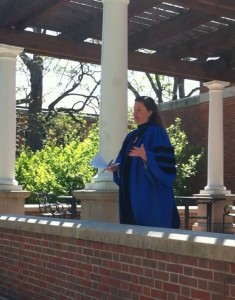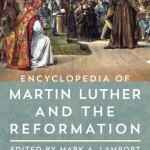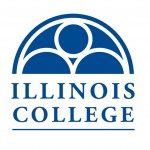 The following is a set of remarks I delivered yesterday, graduation day, as part of a campus Celebration of Justice and Opportunity at Illinois College. The Celebration was organized by students as an alternate to the College’s official baccalaureate.
The following is a set of remarks I delivered yesterday, graduation day, as part of a campus Celebration of Justice and Opportunity at Illinois College. The Celebration was organized by students as an alternate to the College’s official baccalaureate.
Normally, on a Sunday morning, I am doing one of two things: going to church, or more frequently eating breakfast in bed while watching Sunday morning political talk shows. Religion and politics is just what I do … even on the weekend. One of the regular guests on those shows is Bill Bennett, former U.S. Secretary of Education and conservative pundit. Bennett has a new book out this month in which he asks “Is College Worth It?” The ominous subtitle for the book gives you a sense of his answer: “A Former United States Secretary of Education and a Liberal Arts Graduate Expose the Broken Promise of Higher Education.” Bennett was on one of the weekday morning shows last week, when host Mika Brzezinski pointed out that Bennett himself has not only a college degree himself, but also a Ph.D. In Philosophy. With which of course he went on to direct the National Humanities Center, head the National Endowment for the Humanities, direct the Office of National Drug Control Policy, and hold a cabinet level position as secretary of education.
College seemed to be worth it. For him. But today? For you? Well, he’s got a lot of doubt about that.
I tell you this story not only because I have a different answer, but because if you weren’t already aware of it, there is a movement afoot to discredit the very thing that we are celebrating today: the completion of a four-year degree at a private residential liberal arts college. So, was it worth it?
Yes, I tell you, college is worth it. And I want you to know why I think that, and why some others think it isn’t.
Bennett is relying partly on what Paulo Freire calls the “banking” model of education. Freire was a Brazilian teacher and philosopher of education, key in grassroots community activism and liberation theology. He challenged the ways that the powerful used education to maintain the systems that keep them in power –systems like government, religion, and education itself. Freire describes this model of education:
– The teacher teaches, and the students are taught.
– The teacher knows everything, and the students know nothing.
– The teacher chooses and enforces his/her choice, and the students comply.
This is not only how the banking model of education works, it is in fact how an oppressive society functions.
Friere goes on:
“[In this way of educating] The more students work at storing the deposits entrusted to them, the less they develop the critical consciousness which would result from their intervention in the world as transformers of that world. The more completely they accept the passive role imposed on them, the more they tend simply to adapt to the world as it is and to the fragmented view of reality deposited in them.” (73).
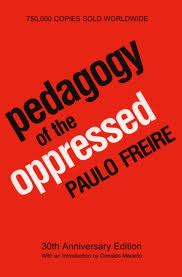 It’s a one-way street, this kind of education. It serves the powerful in a corrupt and oppressive society. It maintains inequalities. It keeps the status quo just as the powerful “teachers” would like it to be … benefitting their interests.
It’s a one-way street, this kind of education. It serves the powerful in a corrupt and oppressive society. It maintains inequalities. It keeps the status quo just as the powerful “teachers” would like it to be … benefitting their interests.
So, if you look at education with a deposit/withdrawal mentality, and if the student-generation isn’t complying, isn’t being passive, and instead is asking questions that the teacher-generation does not like, then no … it isn’t worth it. The deposits aren’t available for withdrawal.
But here’s the thing … I’m with Freire who says that education should be liberating and revolutionary. That’s the origin of the idea of “liberal arts” in fact … it’s about liberation. It’s freedom from not knowing, freedom to act. He describes the “humanist revolutionary educator” in this way:
“From the outset, her efforts must coincide with those of the students to engage in critical thinking and the quest for mutual humanization. [Her] efforts must be imbued with a profound trust in people and their creative power. To achieve this, they must be partners of the students in their relations with them.” (75).
Freire understood very well the transformative power of education. He saw what difference it made:
“If men and women are searchers and their ontological vocation is humanization, sooner or later they may perceive the contradiction in which banking education seeks to maintain them, and then engage themselves in the struggle for their liberation.” (75)
If we the faculty have done our job right, then you the students will challenge the systems that surround you. You already are. And this is the fundamental reason that that yes, college is worth it. College that is made up of face to face interaction with human beings and human texts, participation in a community, accountability for your actions, and opportunities to practice and develop skills that you’ll use for the rest of your life.
Think about it:
You can begin understand what justice is if you’ve read philosophy or history or classical literature. You can begin to know the consequences of injustice if you’ve encountered voices of the marginalized in poetry, on film, and at the homeless shelter. You can begin to find your own way to transform society if you’ve volunteered to read in an after school program, put in service hours at the food center, raised money to fund cancer research, played bingo at the retirement community, or staged a play that tells the truth about violence against women.? You can begin to experience the frustration of building alliances if you’ve had to do a group project or start a student organization. You can begin to know the power of collaboration when you watch the people you’ve organized and mentored carry out the project or event you never thought would happen.
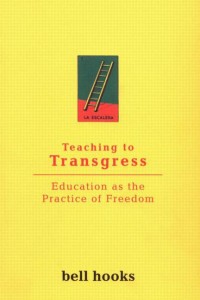 A transformative education, then, isn’t a series of deposits and withdrawals that can be measured and held in balance. bell hooks describes education as a “location of possibility.” She says that in it:
A transformative education, then, isn’t a series of deposits and withdrawals that can be measured and held in balance. bell hooks describes education as a “location of possibility.” She says that in it:
“we have the opportunity to labor for freedom, to demand of ourselves and our comrades, an openness of mind and heart that allows us to face reality even as we collectively imagine ways to move beyond boundaries, to transgress. This is education as the practice of freedom.” (207)
With a college education, you learn the limitations and possibilities of this difficult and wonderous world, and you learn what you can do to transform them even though it may be messy. You learn that standing up for justice can even be divisive.
The ancient Hebrew prophet Amos cried out in the midst of a social crisis where the privileged were prospering at the expense of the oppressed: “Let justice roll down like waters, and righteousness like an ever-flowing stream.” (Amos 5:24). Amos was speaking to and for the ancient 99%. The image of the rushing waters is offered up here as good news for those who have been struggling for survival, a community desperate for justice and longing for the defeat of their enemies.
I am mindful, though, of the fact that we sit here in the basin of the Illinois River, not so far from the confluence of the Missouri and Mississippi rivers, each of them this spring flooding and cresting against constructed levees and sandbag walls that communities of people fought against time to build. Because rushing water isn’t always good news. Its power overwhelms and even alters the landscape.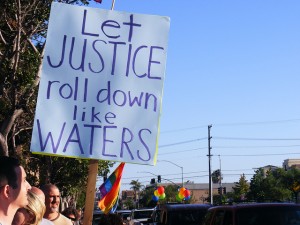
And this is what justice does: It disrupts ordinary life, it threatens to split communities, it transforms the social landscape, and even sometimes it costs a life. In his last speech to the striking sanitation workers in Memphis, Dr. Martin Luther King Jr. had already suffered bomb threats and stabbing, but he knew that the work for justice must continue. He knew that rallying the poor against the powerful came at a cost. He used the New Testament parable of the Good Samaritan to acknowledge that taking a stand with the oppressed and the marginalized is dangerous work. But, he says:
“The question is not, ‘If I stop to help people in need, what will happen to me?’ The question is, ‘If I do not stop to help people in need, what will happen to them?’ That’s the question.”
By changing the question from ‘what will it cost me to stand up for justice? To ‘what will it cost others if I do not stand up for justice?’ King reminds us that it’s not in fact about us. (In fact, I have a magnet from a MLK Day celebration many years ago that reads: “Justice. Not Just Us.”)
And in that speech, he also names the opportunity: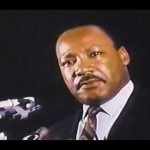
“Let us rise up tonight with a greater readiness. Let us stand with a greater determination. And let us move on in these powerful days, these days of challenge to make America what it ought to be. We have an opportunity to make America a better nation.”
It’s a lofty claim, that we have an opportunity to make this a better nation. But, we do. You do.
There’s a reason, then, that Illinois College’s Leadership Program adopted justice and opportunity as its two signature values, because that is in fact what leaders do, work for justice and expand opportunity. It’s what this College was founded to do. Nearly 200 years ago, the social justice issue, the thing that Julian Sturtevant and Edward Beecher and Jonathan Baldwin Turner and all the rest understood would make this a better nation, was ending slavery. Expanding the actual practice of freedom. Society needed transformation, and they understood education to be part of that work of expanding opportunity and creating justice.
They knew too that that standing for justice can cause division in a community. It did for them with some members of a southern-sympathizing local community. Here is where Dr. King’s idea of the ‘transformed nonconformist,’ those he calls ‘the creatively maladjusted,’ can be a guide. Simply put, there are things in society to which we should not conform. There are realities in our community to which we ought not adjust. We must work to transform them.
I’ll conclude with words from the foreword to Paulo Freire’s Pedagogy of the Oppressed:
“There is no such thing as a neutral educational process. Education either functions as an instrument that is used to facilitate the integration of the younger generation into the logic of the present system and bring about conformity to it, or it becomes “the practice of freedom,” the means by which men and women deal critically and creatively with reality and discover how to participate in the transformation of their world.” (34).
Participate in the transformation of this world. It needs it.
Having the knowledge, and skills, and experience, and strength of character to do this work for justice and meet the challenge of expanding opportunity … now that’s what a college education is for.
And, yes, it’s totally worth it.
‘Let Justice Roll’ image via.

